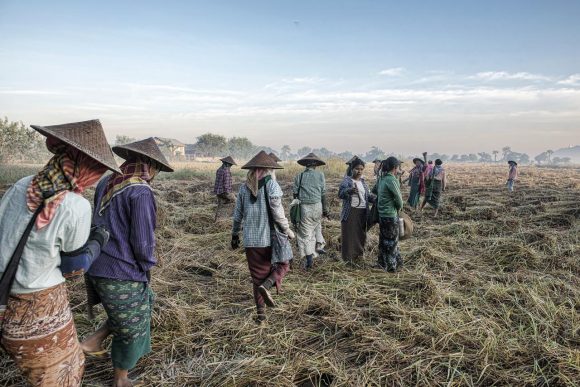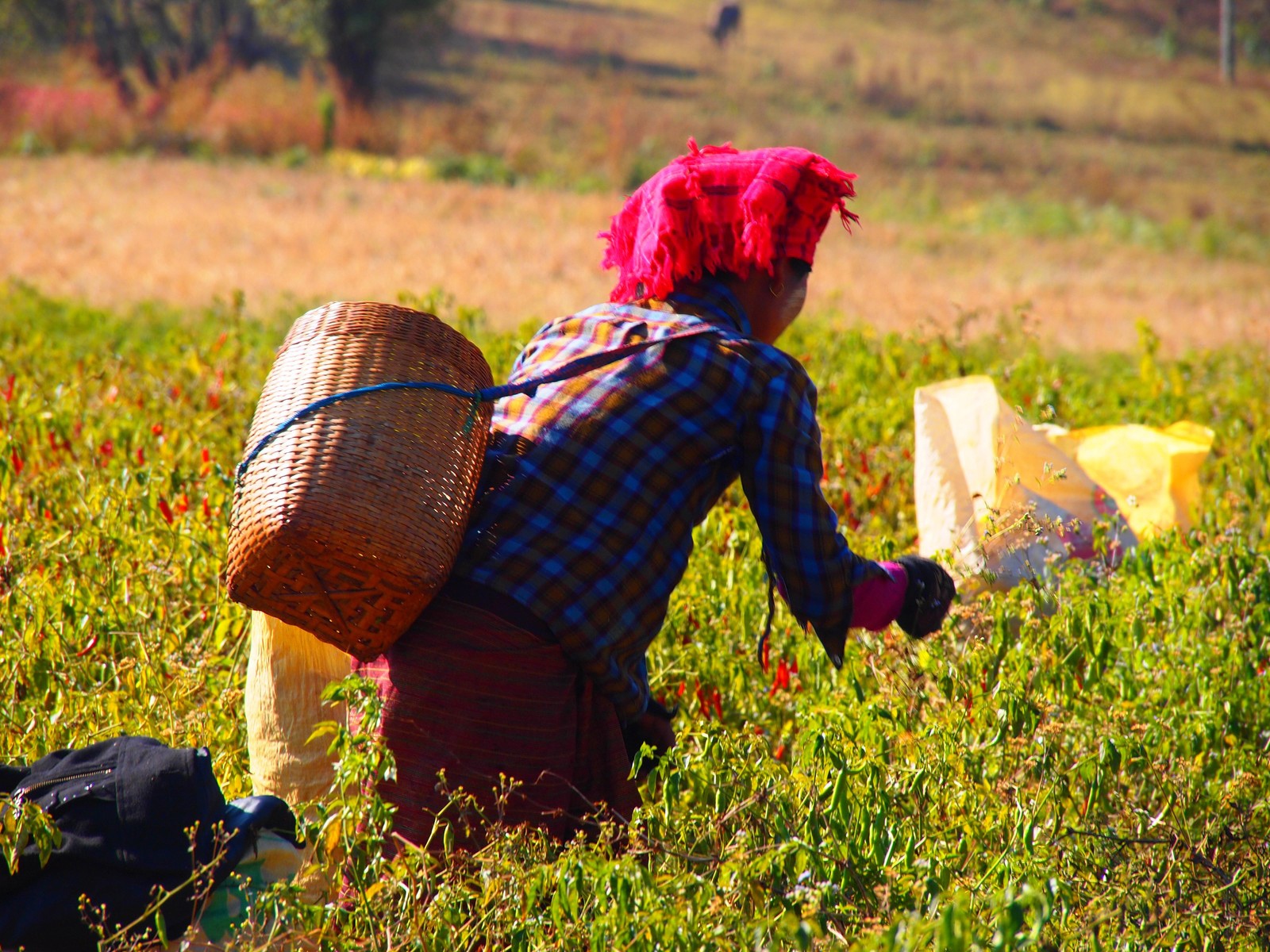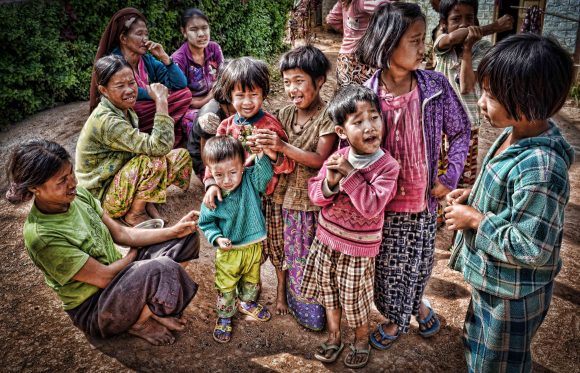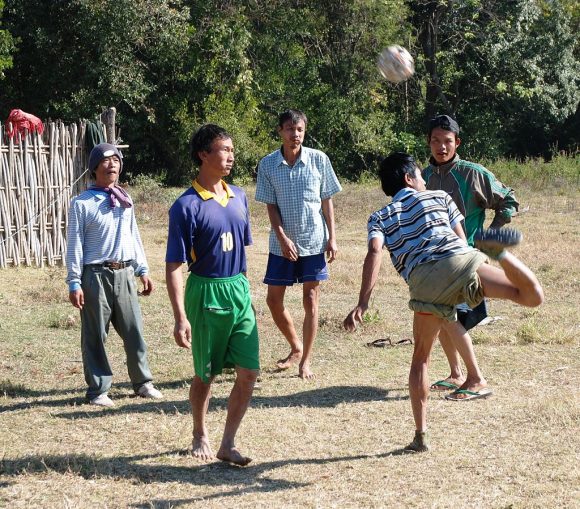The Myanmar School of Politics: Building trust and a culture of cooperation

First launched in 2014, the Myanmar School of Politics (MySoP) aims to strengthen the democratic role of politicians and political parties, and enhance the practice of multiparty dialogue.
As such, MySoP takes place in a multiparty setting: all parties with an established presence study and practice politics together in a neutral, respectful setting. In this way, the courses aim to build trust between the different political party representatives, and promote a political culture of openness and cooperation.
The School is made up of interrelated components:
- Core courses: intensive, 20-day learning retreats aimed at improving politicians’ capacities and their constructive, policy-oriented political engagement.
- Alumni activities: long weekends where core course alumni gather to further increase their knowledge and capacity.
- Multiparty dialogue platforms: facilitated dialogue cycles designed to enhance multiparty dialogue and find new approaches to Myanmar’s challenges and opportunities.

Myanmar’s transition to democracy
Apart from a brief window of multiparty democracy following independence from Great Britain in 1948, Burma, as it was called then, was ruled by decades of repressive governments. Trust between people, between people and the government, and amongst politicians had been eroded, and ethnic tensions spilled over into some of the world’s longest-running armed conflicts.
During the darkest periods, even the mention of the word “democracy” could land someone in prison. Many people who strived for citizen rule spent years of their lives behind bars or under house arrest. Just discussing politics was dangerous, let alone practicing it.

In 2010, this slowly started to change when Myanmar held its first, imperfect, elections in over 20 years. The doors to democracy further opened in 2012 with by-elections that were considered relatively free and fair.
By 2014, the number of political parties started to greatly increase as more and more people started to believe that the political change that was occurring was, in fact, real.
Setting up MySoP
It is within this context that NIMD, together with partner organization Demo Finland, started the Myanmar School of Politics (MySoP) in 2014.
MySoP works mostly in the ethnically diverse states in the north-eastern part of the country where, after decades of particularly intense conflict, the feelings of mistrust are most evasive. The lack of dialogue between political rivals was immediately tangible during discussions with political parties about the need for, and nature of, the Myanmar School of Politics.

Because political education and freedom of association had been effectively banned in Myanmar since 1988, equipping political leaders to make the most of the newly opened political space and possible future political responsibilities was a necessary step, both for the parties and for the country as a whole. These political leaders would hold the key to a successful transition to multiparty democracy, so providing them with the necessary skills and knowledge would be crucial.
And, despite the difficult context, it became apparent from initial sessions that the political leaders had a real drive to develop the skills and understanding needed to make the most of this new space.
The concept of multiparty political dialogue at the regional level was still largely unchartered territory; with so many new parties and politicians, it became important for all involved to have a good grasp of the issues at stake.

MySoP would provide the political leaders with a four-week long, intense learning experience on political theory, democratic skills and multiparty dialogue. As a result, the fragile transition to democracy in Myanmar would be anchored in trust among the parties. This would prevent parties from fighting in the political arena and hopefully focus their efforts on much-needed development in the states and regions of Myanmar.
Continuing the legacy of dialogue
In 2016, a group of politicians came together in a remote setting in Shan State to learn together, and build trust and a sense of community, a process which is at the heart of MySoP.
NIMD has been working extensively in Shan State over the past few years. It is located in the northeast of Myanmar, and is the country’s biggest and most ethnically diverse State. Almost four times the size of the Netherlands, Shan State is home to a large variety of terrains and ethnic groups, and plagued by ongoing conflict as well as a troubled history.

By mid-2015, Shan State had 16 registered political parties, mostly ethnic-based and with little political experience.
Leading politicians from all these parties took part in one of MySoP’s core courses. This was held in a small and secluded hotel, perfectly suited to serve as a safe space where political party representatives could feel comfortable to share their experiences and learn from one another.

On the first day of the course, a diverse group of state-level politicians gathered in the room. Men, women, party executive members and youth representatives – all from different political parties, ethnic backgrounds and social classes from across the state – were ready to embark on a month-long journey of studying and practicing democratic politics together.
Not long ago, a meeting like this would have been enough to get them dismissed from their parties, jailed, or worse. Now, they were here.
While that in itself was progress, there was, during the first few days, tangible distrust, or at best scepticism amongst the participants, impeding cross-party contact let alone any type of cooperation.

Building trust between the participants
It was clear that the participants needed time to feel at ease and NIMD carefully guided their introduction.
The facilitators played an important role here by listening actively to uncover any feelings of discontent, both in terms of content as well as with regards to group dynamics, and putting in place mitigating measures if needed.
From the very beginning of every course, NIMD takes into consideration all the factors which can contribute to creating a safe space. This can range from simple steps such as ensuring all participants have mosquito repellent and are satisfied with their rooms, to more crucial measures, such as jointly designing clear privacy arrangements that all participants feel comfortable with. For example, any photos or videos taken need to be approved by all participants before being released.

To promote positive group dynamics, NIMD holds informal dinners and movie nights, brings sport equipment for the participants’ spare time and holds at least one recreational activity such as sightseeing.
Slowly the participants of the Shan course started to gel. They felt more at ease with each other.
As time went by, they became more open and responsive and started to have fun while learning and practising together.
As one participant explains:
“some of the MySoP participants live in my native town but I [would] never meet with them! We became friends in MySoP and it was very easy to communicate with them afterwards.”
Participants from opposing parties could be seen playing Chinlone, a traditional non-competitive sport.
This new openness enhanced trust building, and perspectives began to change towards cooperation across party lines.

Participant testimonies: through their eyes
A participant from the ruling party shared their own experience:
“When I worked with other parties in the group, I saw their strengths. They knew some things that I didn’t know about. We could share values and solutions in group exercises”.
The General Secretary of one of the largest ethnic parties also opened up about the change:
“In Shan State, parties did not have the chance to be friendly before. Now that we have better relations and better connections more cooperation is likely to happen.”
A representative of an ethnic party indicated that, before the MySoP course, he had thought of politics as a game in which only one party can win. Now he has learned
that cooperation is actually better than a zero-sum game:
“It came as a big surprise to me.”

With a new sense of trust and cooperation, the group was able to effectively build their knowledge of democratic concepts and institutions, also undertaking skills trainings to bolster their self-confidence and added value in the democratic transition.
To date, NIMD has trained 137 participants representing 30 political parties in five states in Myanmar, all of whom go back to their cities and towns in active pursuit of multiparty democracy.
MySoP promotes a culture of inclusive multiparty democracy, based on trust and cooperation, where responsive and able politicians genuinely represent their constituencies.
A lot has been accomplished since the transition to democracy, and NIMD is committed to continuing this work for the years to come.
After graduating from the core course the students will be allowed to enter the alumni programme that entails multiple day activities where core course alumni gather to further increase their knowlege and capacity on the issues concerning programmatic parties, intraparty democracy, and dialogue. The alumni programme allows the maintenance of the network that has shaped during the core course and facilitates the broadening of this network across region/state boundaries.